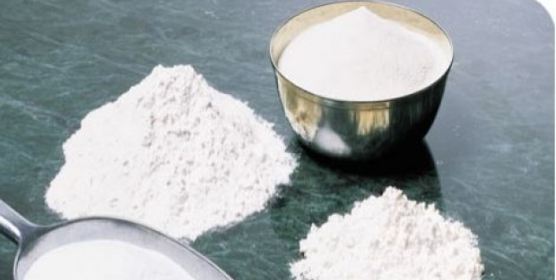
Everything you ever wanted to know about lactose
One thing that often comes up during many of my conversations about dairy, is lactose intolerance. A lot of people tell me that they would love to eat more dairy products, but they can’t because they are lactose intolerant.
So I always have to explain that this just isn’t true. So I decided to write a posting dedicated to lactose so you can tell all your friends the truth about lactose intolerance and the surprising benefits of lactose.
What is Lactose?
**a lactose molecule, source**
Lactose is a disaccharide sugar composed of glucose and galactose meaning it is composed of two different types of sugar. When you eat lactose your body has to cut the bond between the glucose and galactose. An enzyme called lactase cuts the bond between these two sugars.
As a person gets older they may slowly lose the ability to produce lactase, and this is where the topic of lactose intolerance comes into the picture.
What is Lactose Intolerance?
According to the National Dairy Council there are 3 different types of lactates deficiencies.
1- Congenital lactase deficiency – This is an extremely rare condition where intestinal lactase is absent at birth
2- Secondary lactase deficiency – This is a condition that is the result of some disease or things such as radiation treatment. This condition is usually only temporary and a person can resume normal lactase production after they get better.
3- Primary lactase deficiency – This is the most common type. Primary lactase deficiency is when individuals slowly lose the ability to produce lactase as they get older. Usually a person’s ability to produce lactase is determined genetically.
Don’t misdiagnose yourself
Lactose Intolerance isn’t prevalent in the U.S.
If you think you may be lactose intolerant, you should be properly diagnosed. Many people often misdiagnose gastrointestinal symptoms as being lactose intolerance. In fact, lactose intolerance is not as prevalent as many people would believe.
According to the National Dairy Council, 75% of people worldwide are lactose non-persistent (meaning they lose the ability to produce lactase). However only 25% of people in the U.S. are lactase non-persistent (lactose intolerant) so many people in the U.S. are not actually lactose intolerant.
A study in the New England Journal of Medicine by Dr. Michael Levitt showed that people who thought they had lactose intolerance really didn’t. So it’s really important to not misdiagnose yourself.
True Symptoms of Lactose Intolerance
According to the National Dairy Council, the true symptoms of lactose intolerance are nausea, cramps, bloating, flatulence, and diarrhea anytime from 30 minutes to 2 hours after consuming too much lactose.
There is a test available to determine if you really are lactose intolerance. The breath hydrogen test diagnoses lactose intolerance by measuring the amount of hydrogen produced before and after consuming lactose.
I was diagnosed as being Lactose Intolerant, Should I cut Dairy?
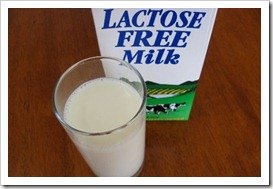
There are actually many different options for lactose intolerant people today. For example, there is lactose free milk available in the store. At the milk creamery, they simply added the lactase to the milk so your body doesn’t have to produce the lactase. So if you have problems digesting lactose, you can comfortably drink this milk without any discomfort.
Acidophilus milk is another option. Drinking acidophilus milk can minimize the symptoms of lactose intolerance. Acidophilus is a type of probiotic bacteria that has many health benefits, and the bacteria can actually help your body break down the lactose. Many people report that this is a great way to offset the effects of lactose intolerance.
Drinking milk with food is another way to reduce the effects of lactose intolerance. Drinking your milk with food helps reduce the effects because it slows down the digestion of the milk.
Many people are surprised when I tell them that cheese and yogurt have no lactose. Fermented dairy products like cheese and yogurt have no lactose. The bacteria that were used to make cheese and yogurt use the lactose as their food when making the products. If your lactose intolerant, you can safely eat cheese and yogurt.
You can Consume Lactose if you are Lactose Intolerant
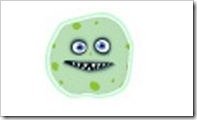
Starr notes that certain bacteria in your gut have the genetic ability to consume lactose, but if you don’t consume lactose often enough these bacteria will begin to lose out to the bacteria that cannot consume lactose.
So if you misdiagnose yourself as being lactose intolerant, and stop eating dairy products completely, the bacteria populations in your gut that can digest lactose will get much smaller. So you will be able to eat less lactose than before. Conversely, you can build up the population of lactose digesting bacteria by slowly drinking more and more milk, and introducing more lactose into your digestive system.
If people have problems Digesting Lactose, It’s probably not good for us to Eat, Right?
Wrong! Lactose has a lot of health benefits, and researchers are only beginning to scratch the surface. Ever since it was discovered that many people have problems digesting lactose, researchers have focused their time on finding ways to minimize the adverse effects of lactose that some people experience. Not much research has been put into studying the benefits, but there are already a number of health benefits that have been noted.
1- Lactose is a natural low calorie sweetener
2- Lactose is a healthy sugar with less conversion to fat
a. According to Joe O’Donnell of the California Dairy Research Foundation, unlike fast sugars that are broken down quickly by the body and converted to fat, lactose breaks down more slowly and paces itself to the body allowing it to be burned when the body needs it. In summary, less fat conversion than other sugars.
3- Lactose, unlike other sugars like sucrose, has a minimal effect in causing tooth decay
4- Lactose has a low glycemic index, which makes this sugar beneficial for diabetics
5- Lactose can aid in the absorption of minerals such as calcium and phosphorous which are important for bone health.
6- Lactose can be considered a Prebiotic
a. O’Donnell also writes that prebiotics are non-digestible foods that stimulate the growth and activity of the bacteria in the digestive system. If your body doesn’t produce the lactase to break down the lactose, the bacteria in your intestinal tract will use the lactose. In other words, lactose promotes the growth of the microflora in your intestinal tract for a healthy digestive tract.

Milk is the complete package full of many essential nutrients our bodies need. Lactose is just part of milks natural variety pack of health benefits.
The Summarized Version (Take-Aways)
This was one of my longest postings. Usually I try to keep it shorter, but there is a lot of information about lactose. You could easily spend days researching lactose, so I decided to summarize the main take away points from this posting. I hope you found this information helpful.
- Lactose is a healthy component of milk with many health benefits
- Not many people in the U.S. are actually lactose intolerant, although many people misdiagnose themselves to be lactose intolerant
- If you are lactose intolerant you can still eat dairy products.
- The bacteria in your digestive system can break down the lactose even if you don’t produce lactase. Lactose helps feed the growth of healthy bacteria in your digestive system.
- 4 tips for avoiding the effects of lactose intolerance:
- Drink your milk with a meal
- Buy lactose-free milk
- Eat cheese or yogurt, fermented dairy products have no lactose
- Slowly implement dairy back into your diet








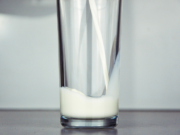



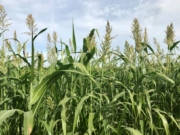


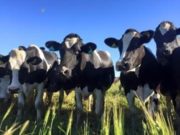

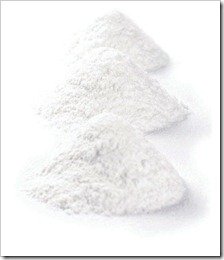





thank you for this post! I am indeed lactose intolerant and so is one of my daughters. we will introduce milk to our daily diet!
I’ve written quite a bit about this topic, I’m really glad you found it helpful!
Thank you very much for spending time to write this blog.. very helpful information.. God bless you..